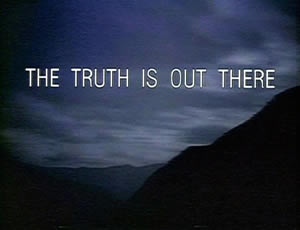Narrative: The Storytelling Powerhouse
I love reading and writing. It seems crazy to me that, just now, after 40 years of life, I realized how powerful and important stories are. I tweeted this 'eureka' moment as soon as it donned on me.
I had a realization that I really prefer business and personal development books that are narrative in form. Thoughts?
— Jay Gilmore (@JayGilmore) July 3, 2013
I've been reading more books on my quest to grow and change. The books that resonate most take a narrative form. The narratives can be complete archetypal tales or short anecdotal stories. In contrast to narratives, prescriptive works—ones that tell you what ought to be and I ought to do, leave me feeling invalidated and foolish for not coming to this conclusion myself.
Fictional Archetypes
Some examples archetypal narratives that had significant impact for me include: Michael Gerber's, The EMyth Revisited (one of my all time favourite business books), Dave Chilton's Canadian, personal-finance classic, The Wealthy Barber, and, Freshbooks founder, Mike McDerment's, recent small-business revelation, Breaking the Time Barrier.
Each book is built around fictional characters to tell the story of their circumstances, based on the real circumstances many of us find ourselves in. The books then develop and demonstrate the clear path through the challenges and into the new reality. We see ourselves in that character. Since the character is just like us, we can see ourselves moving to the same place. We're not being told what to do, they are. And, through their changes and responses, we see the way.
Anecdotal Narratives
Other forms of narrative I find compelling are anecdotal narratives from other people who've had experiences similar to our own. These stories of other people—who are like us in many ways—show us that we're not alone; people who've been at the bottom or fell from the top or struggled with addiction or survived a great illness.
When we're in the middle of it we all feel alone. People have had these experiences since time-immemorial. When we hear the stories of others we feel less alone. People who inspire others use this form of personal narratives to let people see that they are not alone and describe how they moved forward.
Recently, the personal narratives that most inspired me include James Altucher's, Choose Yourself and Kamal Ravikant's Love Yourself Like Your Life Depends on It.
Oral Narratives: Podcasts
In addition to books, I've found a number of wonderful podcasts that deal with business and personal development. The beauty of podcasts is, many of them are conversational-format interviews. I find the most impact and inspiration from the narratives in the podcasts. The best hosts encourage guests to share personal stories of their experiences. I can't get enough.
The podcasts I listen to regularly, contain both simple and deep personal stories. The host draws out the stories from their guests, but also share their own reflection of similar circumstance which magnifies the impact. This isn't about inserting themselves into the narrative of the guests, me too-ing, or ego but rather a instinctive need to share experience with another person. Isn't shared experience what togetherness is?
Here are the podcasts I am listening to right now: Chris Brogan's Human Business Way podcast, Jonathan Fields', The Good Life Project, John Dumas', Entrepreneur on Fire and Lewis Howes', The School of Greatness.
These glimpses of the truth from others' lives, brings a lens of perspective to our own lives. In my case, the stories of the feelings I had, have an immense impact on me. They helped me see that I am part of the world and the world isn't always roses. In fact it's sometimes shit. Hearing the stories of when it's been painful or shitty for others has power. It gives power to see ourselves in them and how they've grown and changed.
Sharing Narratives is Important
I've begun to share some of my story. I've shared of my fears, of becoming passive and an almost empty shell. At first, it was for the catharsis of getting it off my chest. Now, I realize that by sharing it I helped others. Not thousands or anything like that. A few people have reached out to me privately to tell me my story helped them feel less alone in their struggles or pain. I've done the same. I've reached out to people whose stories helped me to thank them for sharing. I knew the impact it had on me, and therefore, the impact it might have for another person.
Forever Changed
This realization about the power of stories will change me forever. The work that I do is going to change forever. It is going to be about telling and sharing stories. This will apply with my day job as a Marketing and Communications guy but also as someone seeking new ideas, working to understand and share experiences. The best way to share and communicate is clear to me now: narrative story.

